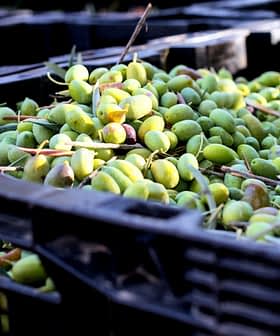Demand for Egyptian Olive Oil Increases Following Currency Floatation
A devaluation of the Egyptian pound is making the country's olive oil exports more competitive in international markets.
Egypt’s decision to drop its currency peg led to a significant devaluation of the pound, benefiting the olive oil industry with increased exports. The move was part of a larger effort to reset the economy after years of political turmoil, with other sectors like tourism also expected to benefit from the devalued currency.
In an effort to stimulate its economy and entice foreign investors, Egypt dropped its currency peg of 8.8 Pounds to the U.S. Dollar on November 3rd of last year. This caused the pound to shed half its value, offering olive oil producers in Egypt an export opportunity.
The Egyptian olive oil industry has seen considerable growth in recent years. Production increased 10-fold between 2005 and 2015, rising from 2,500 to 25,000 tons. Exports of olive oil also grew during this period from 500 to 5,000 tons.
Allowing the Egyptian pound to float on international markets is part of an overall effort by the government to reset the country’s economy after years of political turmoil that included the ouster of Hosni Mubarak in 2011 and a military coup that toppled his successor, Mohammed Morsi. The flotation enabled Egypt to secure a three-year, $12 billion loan from the International Monetary Fund, the largest of its type on record in the Middle East.
The currency floatation, coupled with decreasing global supply and increasing demand, have also helped boost some of Egypt’s largest producers of olive oil. Wadi Food, a subsidiary of the Wadi Group, reported a sales increase of 40 percent in 2016, driven primarily by olive exports. Similar growth figures were released by the Olivee company, which saw olive oil exports increase 65 percent to $19.5 million in 2016.
Despite the increasing optimism in olive oil sales, the overall Egyptian economy is still contracting. The recently released Emirates NBD Purchasing Manager?s Index (PMI) for Egypt reached 46.7 in February, up from 43.3 in January. While growth in these figures indicates the fastest acceleration in Egyptian economic activity since 2014, the PMI must surpass 50 to indicate the start of an economic expansion.
Egyptian olive oil and other commodity exports are not the only sectors that stand to benefit from the country’s currency floatation. Tourism is expected to pick up as the offerings become more affordable to foreigners. The industry suffered a sharp contraction over the past few years due to political turmoil, plane crashes, and security concerns, dropping from a high of 14 million visitors in 2010 to 9.4 million visitors in 2016. However, high-profile tourism visits to Egypt, including the recent arrival of American actor Will Smith, help to encourage new visitors.
Perceptions of Egypt as a destination for travel and investment, and as a source of Mediterranean agricultural commodities, is also set to be influenced in the months ahead following the government’s hiring of two Washington-based public relations firms. A positive boost to American perceptions of Egypt and a devalued currency may cause an increase of Egyptian olive oil imports into the United States.









